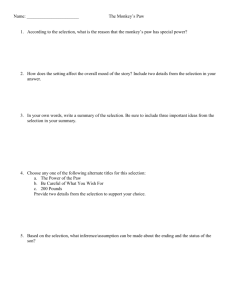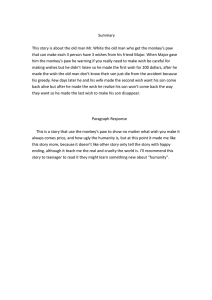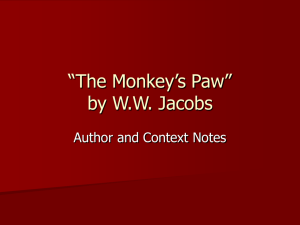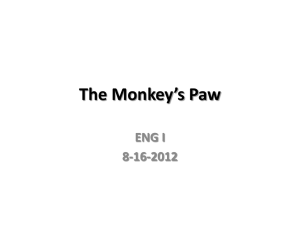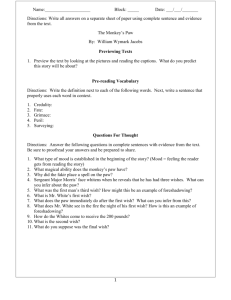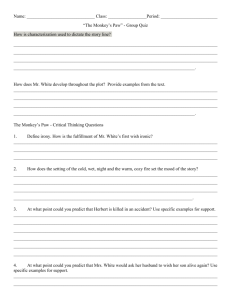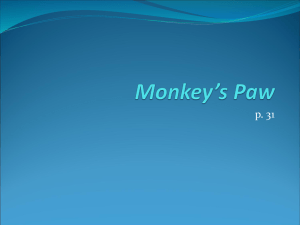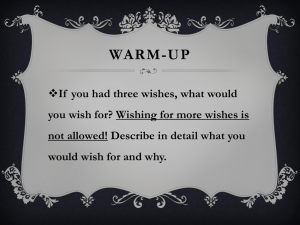grades 9-10 topics, texts, and issues
advertisement
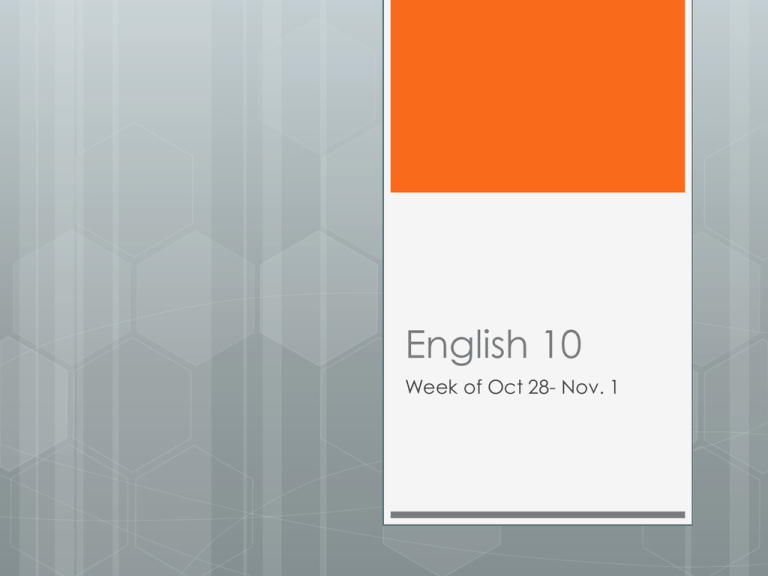
English 10 Week of Oct 28- Nov. 1 Monday, October 28, 2013 Review “The Contents of the Dead Man’s Pocket” Complete Suspense page from Friday Complete reread and read ahead strategies page Objective- Students will learn reading strategies of rereading and read ahead and apply them to future stories. Tuesday, October 29, 2013 In small groups, read “The Monkey’s Paw” While reading answer the questions in the margins together. Reading check Literary analysis- foreshadowing Reading strategy- making predictions Objective- Students will learn to read and discuss a story as a group. Wednesday, October 30, 2013 Review “The Monkey’s Paw” by answering the focus question. Do the events of the story prove the fakirs’ point that “fate ruled people’s lives, and that those who interfered with it did so to their sorrow.” Support your opinion. Read “The Bridegroom” as a class stopping to discuss margin questions. Objective- Students will learn to respond thoughtfully and critically to a short story. Thursday, October 31, 2013 Identify what several quotes from “The Monkey’s Paw” and “The Bridegroom” are foreshadowing. Answer questions based on making predictions. Objectives: Students will learn critically analyze how making predictions and identifying foreshadowing adds to suspense. Friday, November 1, 2013 Review In for quiz over “Contents of the Dead Man’s Pocket” “The Monkey’s Paw” “The Bridegroom” small groups, review questions for quiz Objective- Students will review for weekly quiz. Standards Initiate and participate effectively in a range of collaborative discussions (one on-one, in groups, and teacher-led) with diverse partners on grades 9-10 topics, texts, and issues, building on others’ ideas and expressing their own clearly and persuasively. Cite strong and thorough textual evidence to support analysis of what the text says explicitly as well as inferences drawn from the text. Analyze how an author’s choices concerning how to structure a text, order events within it (e.g., parallel plots), and manipulate time (e.g., pacing, flashbacks) create such effects as mystery, tension, or surprise. Cite strong and thorough textual evidence to support analysis of what the text says explicitly as well as inferences drawn from the text.
